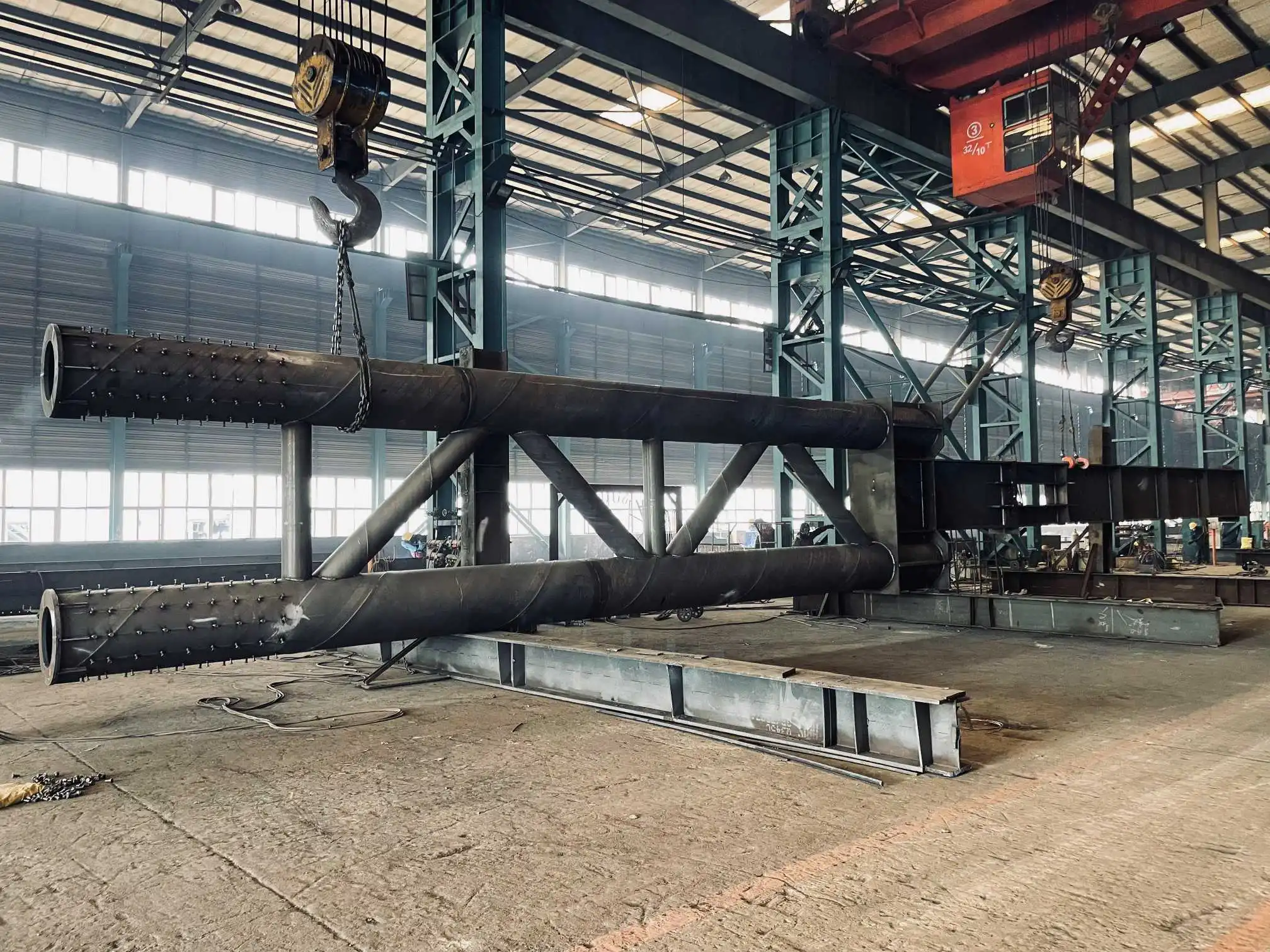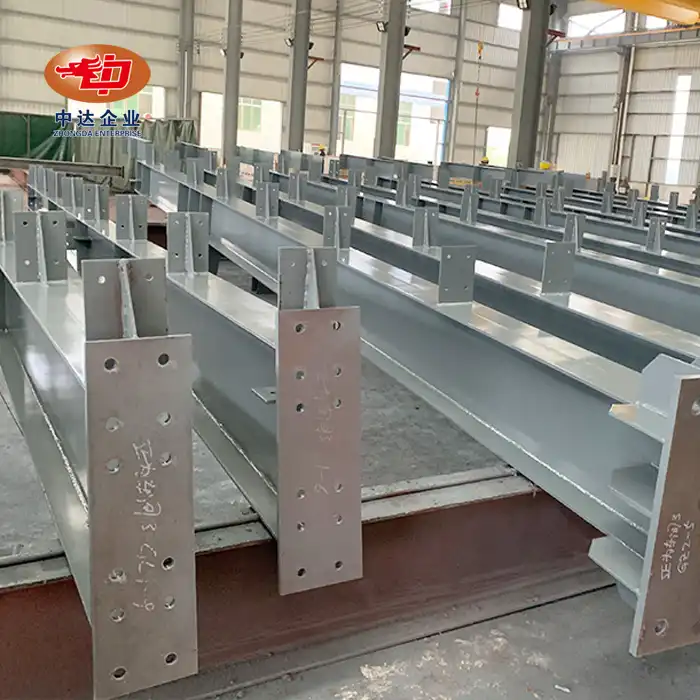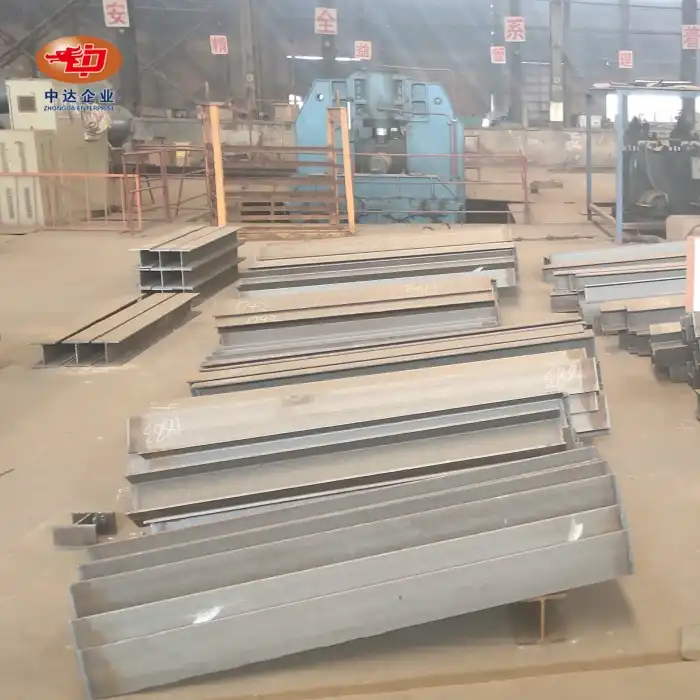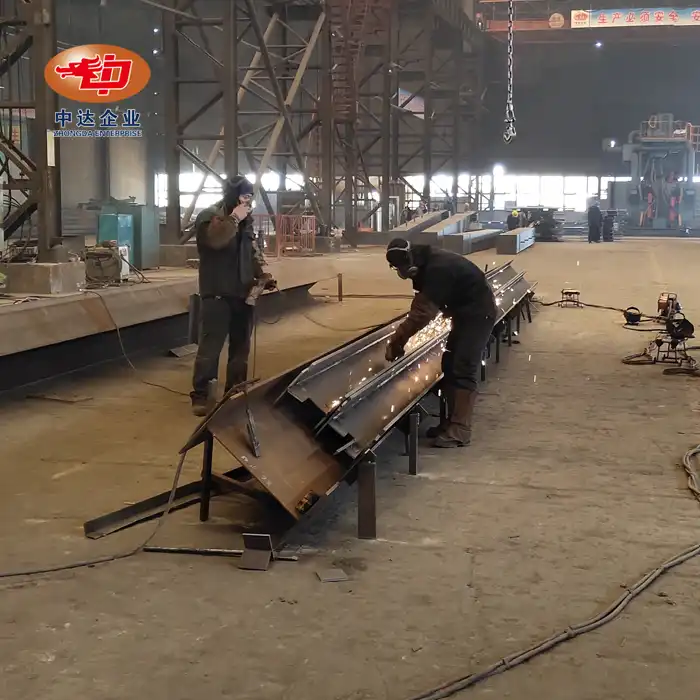Understanding Steel Grades for Platform Columns
The Importance of Steel Grade Selection
Choosing the appropriate steel grade for platform columns is a critical decision that impacts the overall structure's performance, safety, and longevity. The right grade ensures that the columns can withstand the expected loads, resist environmental factors, and maintain structural integrity over time. Factors such as yield strength, tensile strength, and ductility play crucial roles in determining a steel grade's suitability for platform column applications.
Q345B: A Superior Choice for Platform Columns
Q345B steel has emerged as a preferred grade for platform columns due to its excellent mechanical properties. This low-alloy, high-strength structural steel offers a yield strength of 345 MPa and a tensile strength ranging from 470 to 630 MPa. These characteristics make Q345B ideal for constructing robust platform columns that can support substantial loads while maintaining structural stability. Additionally, its good weldability and formability facilitate easier fabrication and assembly processes.
Comparative Analysis of Steel Grades
While Q345B is a top contender, it's essential to consider other steel grades that may be suitable for platform columns. Grades such as S355 (European standard) and A572 Grade 50 (American standard) offer similar strength properties and are often used in structural applications. However, Q345B's balanced composition and performance characteristics make it a versatile choice for a wide range of platform column requirements.

Design Considerations for Platform Columns
Load-Bearing Capacity and Column Sizes
The design of platform columns must account for the anticipated loads and structural requirements. With Q345B steel, columns can be fabricated in various sizes, typically ranging from 200×200mm to 400×400mm. These dimensions allow for flexibility in design while ensuring adequate load-bearing capacity. For instance, a platform designed to support uniform loads of ≥5 kN/m² can be efficiently constructed using Q345B columns, providing a safe and stable foundation for various industrial and commercial applications.
Beam Span and Structural Integrity
Another critical aspect of platform column design is the consideration of beam spans. Q345B steel's strength properties allow for beam spans of up to 12 meters, offering ample flexibility in layout and space utilization. This extended span capability is particularly beneficial in warehouse and logistics environments where open floor plans are often required. The ability to create larger unobstructed areas without compromising structural integrity is a significant advantage of using high-quality steel grades like Q345B for platform columns.
Corrosion Protection and Longevity
To ensure the longevity of platform columns, corrosion protection is paramount. Hot-dip galvanizing with a zinc layer ≥120μm provides excellent corrosion resistance, extending the structure's lifespan to over 30 years. For environments with more aggressive corrosive elements, alternative coatings such as fluorocarbon can be applied. These protective measures not only enhance the durability of the platform columns but also reduce long-term maintenance costs.
Advanced Manufacturing and Quality Assurance
Precision Fabrication Techniques
The manufacturing process of platform columns plays a crucial role in their performance and reliability. Advanced fabrication techniques, such as CNC ultra-thick plate cutting and automated welding, ensure precision and consistency in column production. These methods, employed by industry leaders like Zhongda Steel, allow for tight tolerances and superior quality control, resulting in platform columns that meet or exceed design specifications.
Quality Control and Certification
Rigorous quality control measures are essential to guarantee the reliability of platform columns. ISO 9001 certification is a benchmark for quality management systems, ensuring that manufacturing processes adhere to international standards. Additionally, load calculation reports provide critical verification of structural integrity, offering clients peace of mind regarding the safety and performance of their platform columns. Compliance with standards such as EN 1090, AWS, and JIS further demonstrates a commitment to quality and global applicability.

Customization and Adaptability
The ability to customize platform columns to specific project requirements is invaluable. Detachable platform columns with bolted connections offer enhanced versatility, allowing for easy assembly, disassembly, and reconfiguration. This adaptability is particularly beneficial in dynamic environments where layout changes or expansions are anticipated. By combining high-quality steel grades with flexible design options, manufacturers can provide tailored solutions that meet diverse industrial and commercial needs.
Conclusion
Selecting the best steel grade for platform columns is a critical decision that impacts structural integrity, safety, and long-term performance. Q345B hot-rolled H-shaped steel emerges as a superior choice, offering an optimal balance of strength, durability, and versatility. By considering factors such as load-bearing capacity, corrosion protection, and manufacturing quality, designers and engineers can create robust and reliable platform structures. The use of advanced manufacturing techniques and rigorous quality control measures further ensures that platform columns meet the highest standards of performance and safety.
Contact Us
Ready to elevate your platform column project with Zhongda Steel's expertise? Our detachable platform columns, crafted from premium Q345B steel, offer unparalleled strength and flexibility for your industrial needs. Experience the benefits of our precision engineering and customizable solutions. Contact us today at Ava@zd-steels.com to discuss how we can support your next project with our industry-leading platform column solutions.














